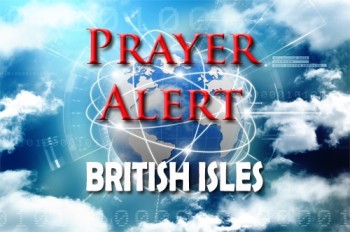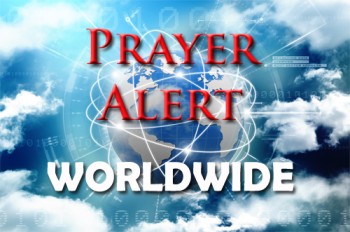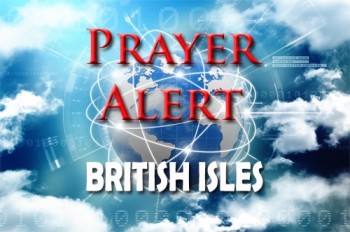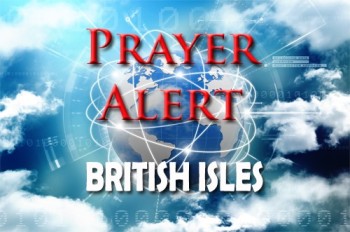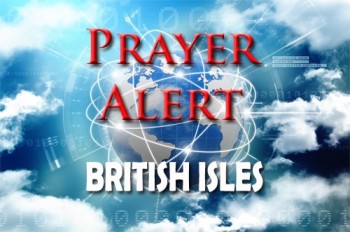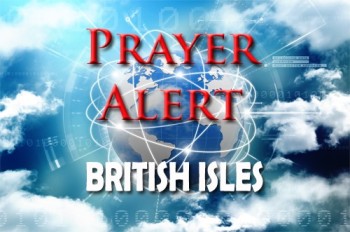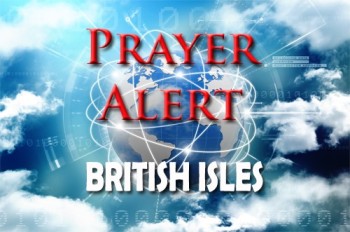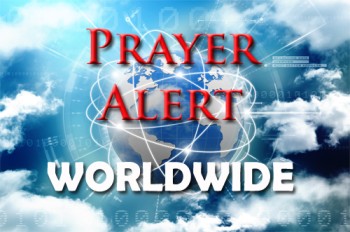Displaying items by tag: crisis
‘Critical incidents’ at NHS hospitals as winter viruses surge
Six NHS hospital trusts across England have declared critical incidents as winter pressures intensify, driven by rising flu cases, norovirus, Covid, staff sickness, and delayed discharges. Nottingham University Hospitals and Sherwood Forest Hospitals and four others are now on that status, signalling that services are stretched beyond safe capacity. Emergency departments are experiencing unprecedented demand, with some seeing over five hundred patients a day. Hospitals report long corridor waits, cancelled non-urgent procedures, and extreme pressure on frontline staff. NHS leaders say festive gatherings, cold weather, and icy conditions have contributed to a 'bounce back' in winter viruses and related injuries, and flu admissions are rising again after a brief decline. Declaring a critical incident allows trusts to prioritise life-threatening cases, redeploy staff, and restrict visitors to limit infection spread. The NHS continues to urge the public to use alternatives such as NHS 111 and community pharmacies where possible, and to support timely patient discharges.
Morocco: response to severe winter emergency
Authorities in Morocco are confronting a severe winter emergency as freezing temperatures, heavy rainfall, snowfall, and flash floods impact large swathes of the country. In response, they have launched a nationwide relief operation covering 28 provinces, aiming to assist around 73,000 vulnerable households with food supplies, blankets, and essential aid. Red weather alerts warn of as much as 80 cm of snow in the High Atlas mountains, while orange alerts signal intense rainfall across central and northern regions. The extreme conditions have already proved deadly: flash floods in the coastal city of Safi killed at least 37 people, damaged homes, and swept away vehicles. To mitigate further harm, the government has mobilised road clearance teams, emergency monitoring centres, and provincial vigilance committees to maintain access to remote and high-altitude areas: residents are being urged to remina cautious, especially when travelling. The relief efforts reflect Morocco’s broader strategy to protect vulnerable communities and mitigate the impacts of what authorities describe as unusually severe winter weather.
France: new PM to be named within 48 hours?
Emmanuel Macron is expected to appoint a new prime minister within 48 hours, following the abrupt resignation of Sébastien Lecornu’s government just 14 hours after being named. Lecornu, asked to outline a path forward, concluded that most lawmakers oppose snap elections and that a narrow parliamentary plurality could support a 2026 budget aimed at reducing France’s deficit, projected at 5.4 percent of GDP. Macron now faces the challenge of naming a leader capable of governing without a parliamentary majority - the same obstacle that brought down Lecornu’s predecessors. Choosing a centre-left prime minister from the Socialist Party could help build a coalition but would probably reignite controversy over Macron’s contested pension reform, which raised the retirement age. With political divisions deepening, Macron has yet to comment publicly, while far-right leader Marine Le Pen and her party have said they would vote to topple any new prime minister named before new elections, intensifying France’s ongoing political instability. For an assessment of Macron’s options, see
Government offers to buy coal to keep British Steel going
The Government has offered to buy the critical raw materials - particularly coking coal - needed to keep British Steel’s blast furnaces running in Scunthorpe. Without this urgent purchase, steel production could halt within weeks and may not be restartable. The offer is directed to Chinese owner Jingye, which has deemed the plant financially unsustainable. Talks continue between British Steel and government officials, with ministers preferring a commercial solution but not ruling out nationalisation. One of the two furnaces, 'Bess,' is scheduled for temporary shutdown on 14 April to conserve remaining materials. The Government hopes to buy time for further negotiations, though frustrations with Jingye’s perceived withdrawal have grown. A new long-term partner may be sought. Unions warn of an 'extreme emergency' and are calling for nationalisation to protect 2,700 jobs and preserve UK steelmaking. A final decision must be made within days to secure new coal and iron ore supplies.
Health crisis sees some GPs working as Uber drivers
A growing number of qualified GPs in England are unable to find work, with some resorting to jobs such as Uber driving to pay their bills. This crisis has been blamed on chronic underfunding and the rising costs of running GP practices, which has left many surgeries without the resources to hire doctors. A new survey by the British Medical Association found that one in five GPs is considering leaving the profession, while nearly half of those surveyed are looking for work outside the NHS. Some are seeking GP roles abroad, while others are considering leaving healthcare altogether. The government has pledged £889 million to reduce administrative burdens and expand GP recruitment programs, but experts warn this is not a long-term solution. Many doctors remain concerned that rising employer national insurance costs will further squeeze GP practices, potentially leading to a mass exodus from the profession. With demand for GP appointments at an all-time high, medical professionals are warning that unless core funding is significantly increased, the NHS could face a two-tier system, similar to what has happened in dentistry, where more doctors turn to private healthcare instead of the NHS. See
Hospitals declare critical incidents amid rise in flu cases
Several NHS trusts in England have declared critical incidents amid a significant rise in flu cases. Hospitals are facing 'exceptionally high' demand, particularly in emergency departments, driven by a surge in respiratory illnesses. NHS data shows that the number of patients hospitalised with flu in England has quadrupled over the past month, exacerbated by cold weather. The Royal Liverpool University Hospital, the largest in Merseyside and Cheshire, stated that while it has a comprehensive plan to address the challenges, some patients will experience delays as priority is given to the most critical cases. It is working with partner organisations to discharge medically fit patients promptly to free up space. Non-emergency patients are being urged to use alternative services like GPs, pharmacies, walk-in centres, or the NHS 111 helpline.
Scotland: NHS will struggle to last another year
Scotland’s NHS faces a critical future: the British Medical Association (BMA) has warned it may not survive another year without urgent reforms. It has stressed the need for transformative changes to maintain the NHS’s founding principle of free care at the point of need. BMA chairman Dr Iain Kennedy described the system as 'in constant crisis’, with understaffed facilities leaving doctors physically and mentally exhausted. A recent survey revealed 99% of doctors are deeply concerned about increasing pressures, with many reporting dangerously overcrowded emergency departments and unsustainable workloads. Dr Kennedy called for a comprehensive workforce plan, long-term funding strategies, and integrated approaches to primary, secondary, and social care. Without reform, more people may be forced into private healthcare or left without access to necessary treatment. The Scottish government acknowledged the concerns, proposing record investments in health and social care. See also
Germany: coalition government on brink of collapse
Germany’s ruling coalition faces a crisis after chancellor Olaf Scholz fired finance minister Christian Lindner, citing a breakdown of trust. Scholz, leader of the Social Democrats, said that Lindner, head of the liberal Free Democrats (FDP), had prioritised his party’s interests over the country’s needs. This move has left Scholz's coalition without a parliamentary majority; this might lead to a vote of confidence in January and early elections. Tensions within the coalition had been brewing for weeks, particularly over economic policies. Scholz and the Green party had pushed for increased public spending, especially to counter rising energy costs and defence needs following Russia's invasion of Ukraine, but Lindner wants to pay for tax cuts by slashing welfare and social budgets and pushing back environmental targets. The political turmoil comes amid economic stagnation and growing uncertainties in Europe, compounded by Donald Trump’s election.
MPs warn of 'unsustainable' social care crisis
A critical report from the Commons public accounts committee has warned of a deepening crisis in adult social care, leaving millions vulnerable. Chronic understaffing, rising waiting lists, and inconsistent funding have put immense pressure on councils. The sector, grappling with a shortage of essential staff and financial strain, is described as being 'on its knees'. Local authorities supported over a million people at a cost of £23.7 billion in 2022/23, yet concerns persist about funding effectiveness and the exploitation of care sector staff. The department of health has been urged to provide stable funding and clear leadership to address these challenges and to fulfil its ten-year vision for sector reform. Meanwhile, in the ongoing Covid inquiry a key role is being played by organisations which represent those affected by the pandemic, particularly in the care sector, including families and carers, many still dealing with trauma. Their efforts include pushing for Gloria’s Law, inspired by the plight of actress Ruthie Henshall’s mother, Gloria, who experienced isolation and deterioration in care during the lockdown.
Global: average temperatures hottest ever
2023 has been declared the hottest year on record by European agency Copernicus, which monitors climate data. The average temperature increase was almost 1.5°C above pre-industrial levels, a significant jump. Several factors contributed to this record-breaking heat. Elevated greenhouse gas emissions, primarily carbon dioxide, played a major role, trapping heat in the Earth's atmosphere. Additionally, natural climate patterns like El Niño and La Niña influenced regional temperatures and weather events. The consequences of this extreme heat are far-reaching. It leads to more frequent and severe weather events, including heatwaves, droughts, wildfires, and intense rainfall - posing serious threats to ecosystems, agriculture, and human populations. International agreements, like the Paris Agreement, aim to limit global warming to well below 2°C above pre-industrial levels. Achieving these goals requires a collective commitment to reducing greenhouse gas emissions, transitioning to renewable energy sources, and implementing sustainable practices across various sectors. The report underscores the importance of addressing climate change promptly to mitigate its impacts and protect the planet's future.
